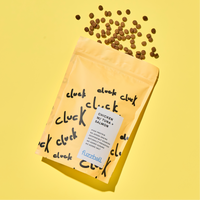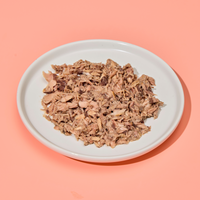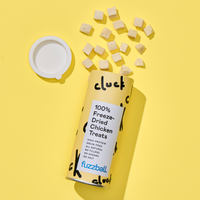Plant-Based Cat Food: Is It Ever a Good Idea?

Cats may be curious about your tofu stir-fry, but that doesn’t mean they should be eating it. As more people embrace plant-based lifestyles, the idea of feeding cats a vegan or vegetarian diet has become a hot topic. But here’s the truth: just because a lifestyle works for you doesn’t mean it suits your whiskered companion. In 2025, interest in meat-free diets continues to rise, and with it, questions about whether plant-based cat food is healthy.
Plant-based cat food refers to commercial or homemade formulas that exclude all animal-derived ingredients. These diets rely on plant proteins like soy, peas, or lentils and are often fortified with synthetic versions of essential nutrients typically found in meat. While some brands claim to be nutritionally complete, they attempt to replicate, rather than naturally provide, the nutrients cats would normally get from animal tissue.
Plant-Based Cat Food: Is It Ever a Good Idea?
The short and quick answer is NO. Cats are obligate carnivores, which means their bodies are designed to get essential nutrients from meat, not plants. Cats have a shorter digestive tract suited for animal protein, sharp teeth for tearing meat, and make very little amylase for digesting starch. Simply put, their digestive systems are optimised for meat, and they are not equipped to thrive on a plant based diet.

Why Protein Matters So Much
Protein isn’t just fuel for cats; it’s the foundation of nearly every function in their bodies. It builds and repairs muscles, supports skin and coat health, powers digestion and metabolism, and plays a vital role in the immune system. It’s also a key energy source, especially important for active or growing cats.
Cats require high levels of protein to support essential body functions, and they cannot produce certain amino acids on their own; those must come from their diet. Taurine is a perfect example: it’s only found in animal tissue and is critical for heart health, vision, and reproduction. While some plant-based proteins might meet general protein needs, they usually lack complete amino acid profiles and are harder for cats to digest and absorb.
Fuzzball’s food offers a strong example of species-appropriate nutrition, using real meat like chicken, tuna, and salmon to provide high-quality protein and essential nutrients such as taurine. These ingredients align with a cat’s biological needs, unlike plant-based alternatives that often lack the same digestibility and nutrient density.
Can Cats Be Allergic to Certain Proteins?
Yes, cats can develop allergies to specific proteins, but this doesn’t mean that all proteins are a problem. A food allergy is an immune system response. Your cat’s body mistakenly identifies a particular protein as harmful and reacts with inflammation. Common symptoms include itchiness, excessive scratching (especially around the ears and face), scabs, hair loss, or recurrent ear infections.
However, it’s important to understand that not all proteins cause allergic reactions. Most cases involve one or two specific sources, typically ingredients the cat has been exposed to repeatedly over time, like chicken, beef, or fish. If your cat shows signs of an allergy, identifying the exact protein causing the reaction is essential.
This is usually done through an elimination diet, where ingredients are gradually removed and reintroduced to pinpoint the trigger. Once the protein is found, it can be avoided while still providing your cat with other animal proteins that are safe and nutritionally complete.
But What About Vegan Cat Food Brands?
Vegan cat food brands do exist, and some are marketed as “complete and balanced” options. However, a closer look reveals some serious concerns. While these products may include synthetic supplements to replace animal-derived nutrients, multiple studies have shown that plant-based diets for cats often fall short of meeting long-term nutritional requirements.

Health Risks of Feeding Cats a Plant-Based Diet
While the idea of a vegan lifestyle may work for humans, applying the same principles to cats can have dangerous consequences. Cats are biologically dependent on nutrients found only in animal tissue, and removing these from their diet can lead to serious deficiencies, even if supplements are added. Poorly formulated plant-based diets can compromise nearly every system in a cat’s body, especially when fed over an extended period.
Here are some of the most common and serious health risks:
- Weakened immune system due to missing or unstable nutrients
- Muscle loss and low energy from a lack of proper protein
- Heart disease due to taurine deficiency.
- Dull coat and dry, flaky skin from a lack of essential fatty acids.
- Digestive problems are caused by excessive plant fibre and poor nutrient absorption.
-
Loss of appetite or food refusal due to the unfamiliar smell or taste of vegan cat food.
Even with good intentions, an unbalanced diet can cause long-term harm. Cats require specific nutrients in forms their bodies can use, and plant-based alternatives simply don’t offer the same reliability or biological suitability.




